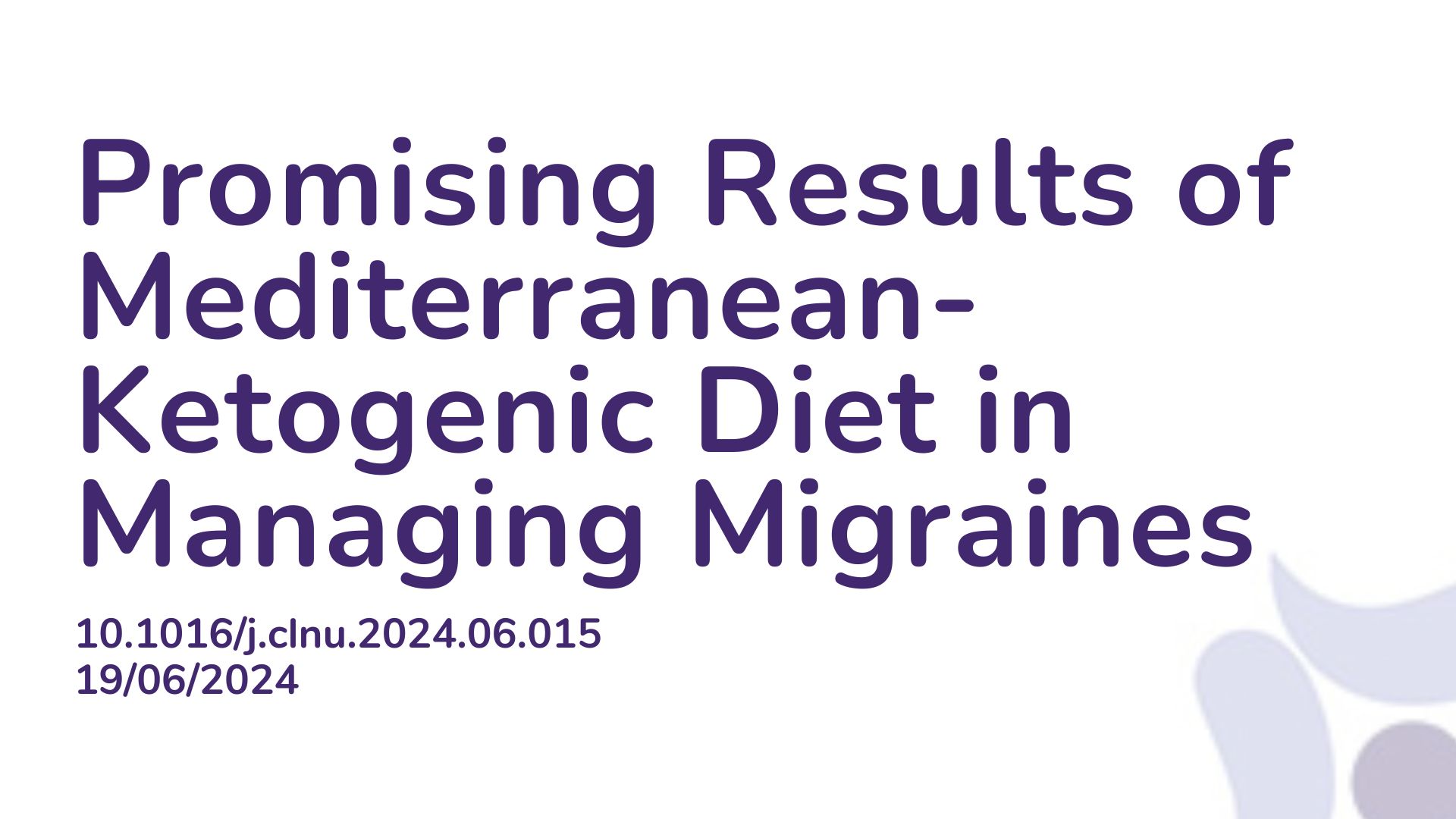Summary:
Emerging evidence suggests that migraine may be linked to cerebral energy deficits or oxidative stress levels that exceed the body’s antioxidant capacity. Current pharmacological treatments for chronic migraine often are ineffective, which has led to increased interest in non-pharmacological approaches, such as the ketogenic diet. The ketogenic diet, which restricts carbohydrates and boosts ketone bodies, targets cerebral metabolism and shows promise in migraine prevention. Additionally, Mediterranean dietary elements like vegetables, nuts, herbs, spices, and olive oil, rich in anti-inflammatory compounds such as omega-3 fatty acids, polyphenols, vitamins, minerals, and probiotics, may create a conducive brain environment by addressing gut microbiome imbalances. In this study, a combined Mediterranean-ketogenic diet was administered to chronic migraine patients over 4 and 8 weeks. Significant reductions in migraine frequency and intensity were noted as early as 4 weeks into the dietary intervention. Furthermore, after 8 weeks, there was a notable decrease in fat mass and insulin levels. In conclusion, the Mediterranean-ketogenic diet emerges as a promising non-pharmacological approach for managing migraine, showing favorable effects on migraine symptoms and body composition.
Abstract:
Background: An increasing amount of evidence suggests that migraine is a response to cerebral energy deficiencies or oxidative stress levels that exceed antioxidant capacity. Current pharmacological options are inadequate in treating patients with chronic migraine, and a growing interest focuses on nutritional approaches as non-pharmacological treatments. The ketogenic diet, mimicking fasting that leads to an elevation of ketone bodies, is a therapeutic intervention targeting cerebral metabolism that has recently shown great promise in the prevention of migraines. Moreover, Mediterranean elements like vegetables, nuts, herbs, spices, and olive oil that are sources of anti-inflammatory elements (omega-3 fatty acids, polyphenols, vitamins, essential minerals, and probiotics) may create a positive brain environment by reducing imbalance in the gut microbiome. Methods: On the basis of these indications, a combined Mediterranean-ketogenic diet was administered to chronic migraine patients for 4 (T1) and 8 weeks (T2), and anthropometric estimations were collected at T1 and T2 while biochemical parameters at only T2. Results: A significant reduction (p<0.01) in migraine frequency and intensity was detected as early as 4 weeks of dietary intervention, which was associated with a reduced fat mass (p<0.001) as well as Homa index (p<0.05) and insulin levels (p<0.01) after 8 weeks. Conclusion: Overall, Mediterranean-ketogenic diet may be considered an effective non-pharmacological intervention for migraine, with positive outcomes on body composition.
Article Publication Date: 19/06/2024
DOI: 10.1016/j.clnu.2024.06.015



